Japan SDGs Innovation Challenge for UNDP Accelerator Labs: Collaboration of UNDP and the Japanese private sector to solve issues in developing countries through business
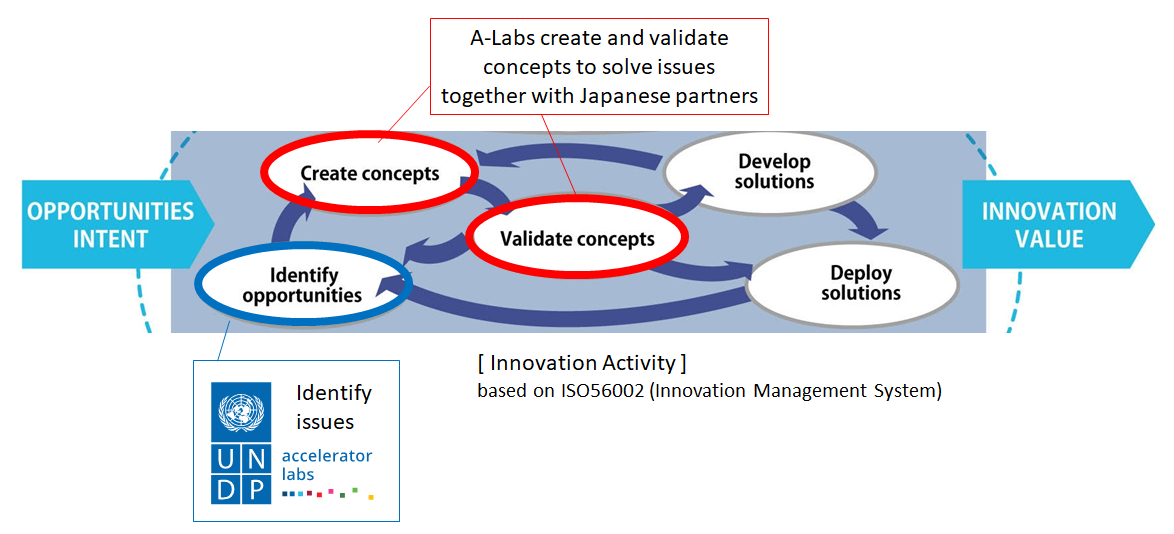
The United Nations Development Programme (UNDP) has established 91 UNDP Accelerator Labs around the world, working with local governments, various organizations, and private companies to create and implement new solutions to development challenges with the aim of achieving the SDGs.
To accelerate this, Accelerator Labs are actively pursuing partnerships with the private sector including those in developed countries. In 2020, funded by the Cabinet Office of Japan, Japan SDGs Innovation Challenge was initiated, and Accelerator Labs and Japanese companies have been jointly creating and verifying solutions by utilizing technology and know-how of the Japanese private sector, while also developing business models for the partner Japanese companies. SHIP has been supporting the implementation of this Challenge.
Projects in this Challenge follow the process of innovation activities as defined in ISO 56002 (Innovation Management System) which was published in 2019 and focusing on the “creation of concepts/solutions” and “verification of concepts/solutions” of the innovation process (see the diagram above).
Since December 2020, projects in India, the Philippines, Vietnam, and Turkey have been implemented, and for FY2021, project implementations in Malaysia, Burkina Faso and South Africa have been decided at the end of 2021.
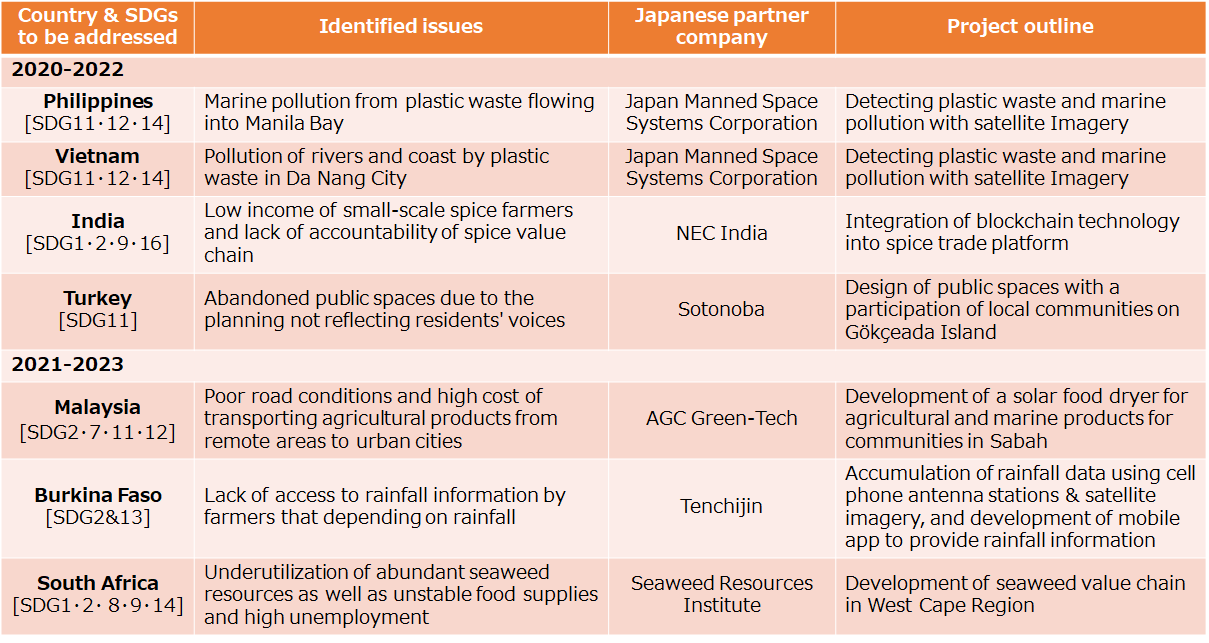
The first cohort projects were conducted fully online because of the COVID19 pandemic over about six-month period. The hot spots of plastic waste accumulation were identified in the rivers of Pasig City in Metro Manila, the Philippines and in the rivers of Danang City, Vietnam by the partner company, Japan Manned Space Systems Corporation (JAMSS). The satellite image-based plastic waste detection models were developed in this project, and used to detect hot spots by comparing satellite images and photos taken on the ground by cameras and drones.
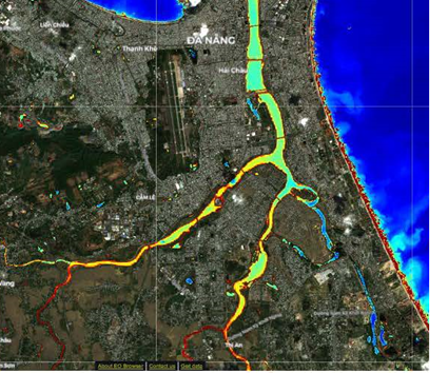
(Red spotted areas are mostly accumulated)
In India, the partner company, NEC India’s blockchain technology was incorporated into eSpiceBazaar, a spice trading platform that was being built by the Spices Board of India, and an app was developed for farmers to input farm and harvest information. User test was successfully conducted with 1,000 chili pepper farmers in Guntur City in the state of Andhra Pradesh.
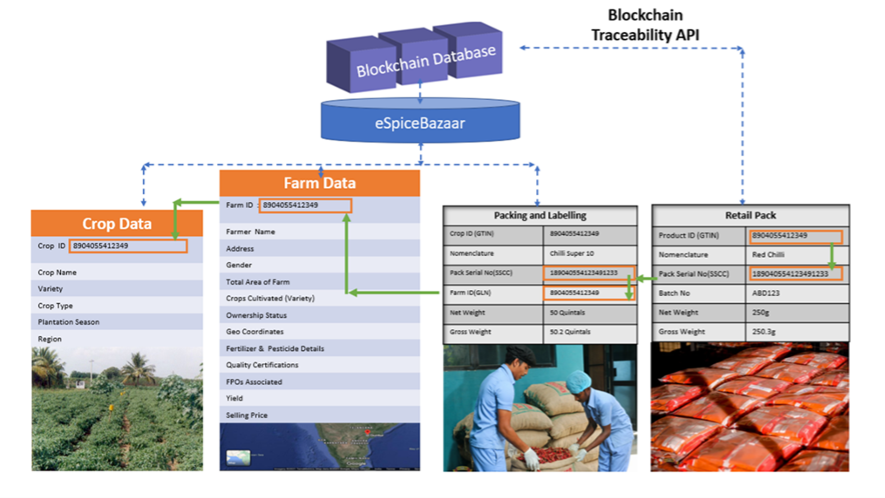
Structure of blockchain empowered eSpiceBazaar
And in Turkey, on the island of Gökçeada, workshops to collect opinion of community residents, were held several times with the participation of adults and school children. The partner company, Sotonoba came up with the vision and designed the facilities for the outdoor public space, by reflecting the results of the workshops. As the output of this project, a method for constructing and operating public space with the participation of residents was developed.
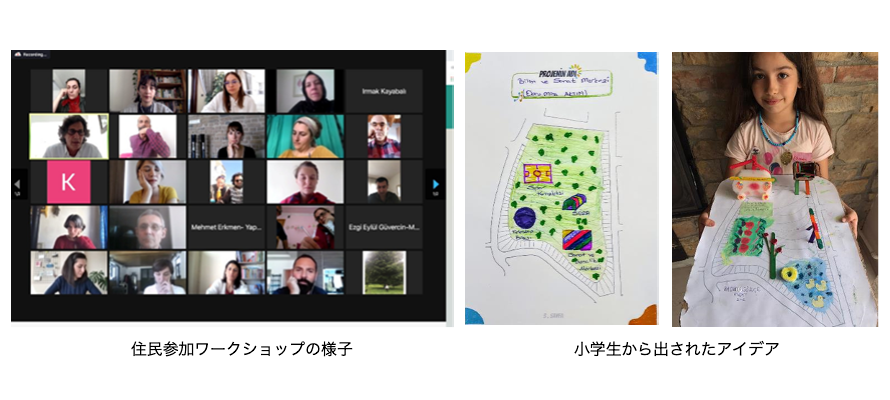
Online workshop with community residents Ideas developed by a student
Based on the significant outcome achieved, it was decided to implement the second phase of the above projects by expanding the target regions and by increasing the number of target beneficiaries and agricultural products.
For the FY2021, projects were initiated in Malaysia, Burkina Faso, and South Africa at the by the beginning of 2022. In these three projects, field visits by Japanese partners was conducted for the first time in South Africa, and collaboration across the three countries has begun in Malaysia project with the participation of third-country partners in addition to Japan.
[Blog by Accelerator Labs on the first cohort projects]
Philippines posted on September 29 2021
Vietnam posted on June 3 2021 and March 9 2022
India posted on September 29 2021
Turkey posted on April 28 2021 and September 29 2021
Share this article
